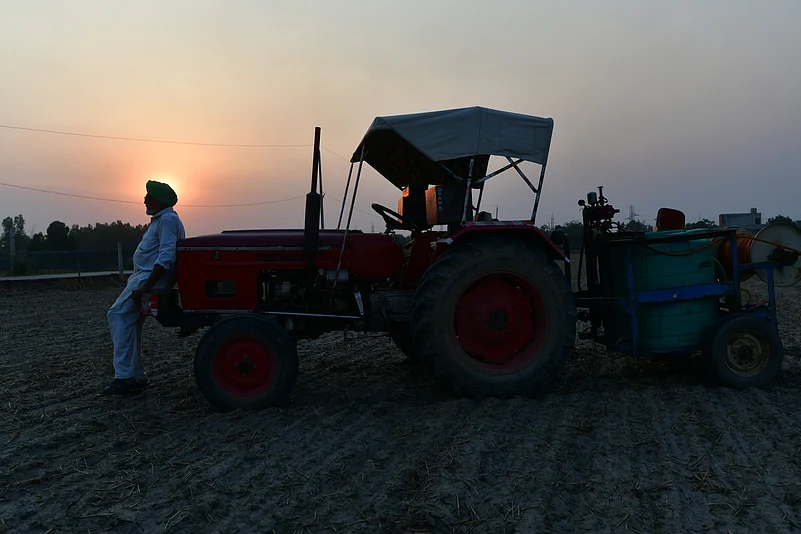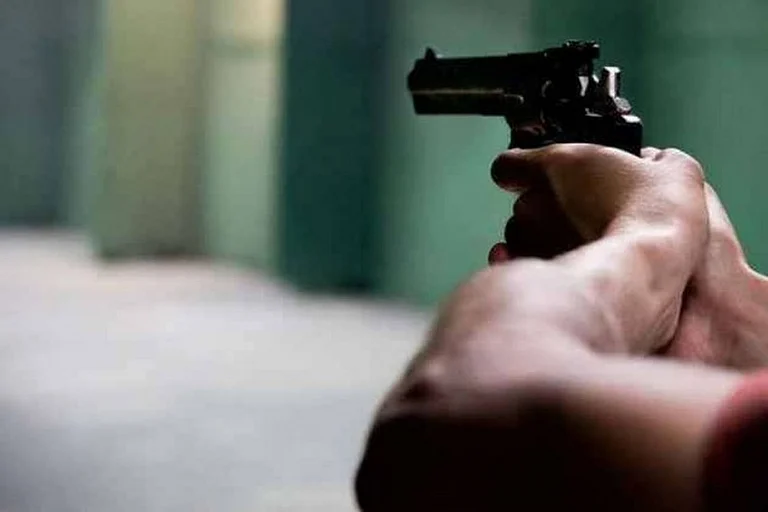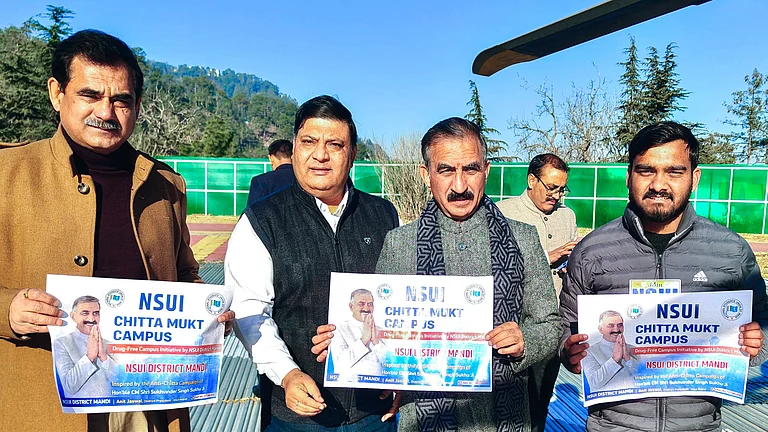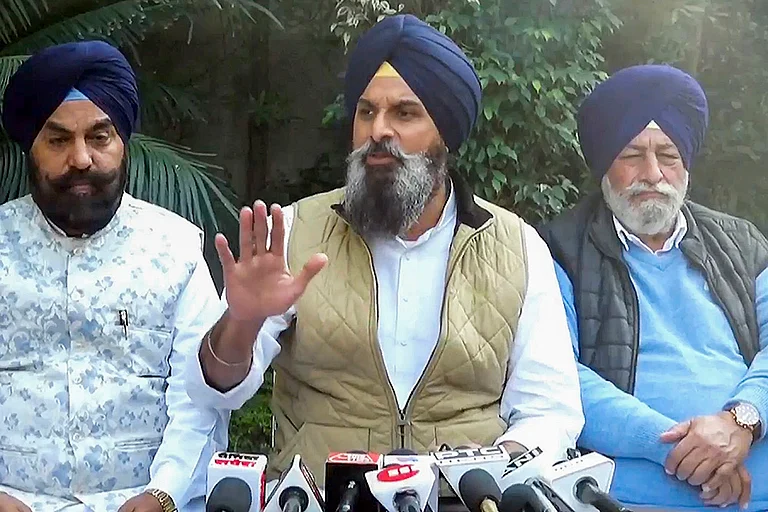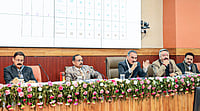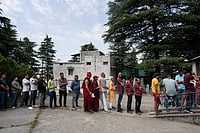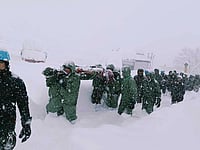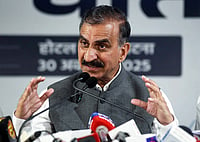As a child, growing up soberly in Jammu’s border village, my memories of holidaying in Punjab are vivid and bountiful. It was in the mid or late 1970s. My mother, whom I lost five months back, used to take a break to visit her ageing parents at Hoshiarpur, aptly coinciding with my school vacations every summer.
Ram Colony Camp—a small rural hamlet where my maternal grandparents had settled temporarily after migration from Pakistan was not only a 'holiday retreat' for me but a place where I listened to some of their stories of pain and despair. The partition in 1947 marked by widespread violence and bloodshed had resulted in tearing apart communities and families. My maternal parents were also victims of this mass displacement. They fled to this part of Punjab leaving behind everything in search of safety and refuge.
Yet, this quaint Punjab countryside was a captivating blend of neo-urban energy and rustic charm, which always made me nostalgic. As a famous quote reads “You have to remember the past to understand the present”. Time passed by, and I also moved on with my journalistic career.
A fortnight back, when my editor told me to travel to Punjab to get an insight into its core politics, tapestry of its culture, caste equations and dera-politics in the heightened election mood, I found it an exciting opportunity to explore the land known for diverse political history, vibrant colours, patriotic spirits and farm prosperity. Punjab’s rich culture and heritage encompasses genres such as poetry, folk, music, novels and literature and has always touched millions of hearts. It resonates strongly with societal issues and lifestyle there.
Against this backdrop, my Punjab assignment sounded enormously exciting. The big worry, however, was the soaring heat of the plains and mercury hitting a high of 43 to 44 degrees Celcius in towns like Sangrur and Bathinda—both being part of my travel itinerary. Other places and rural settings of Patiala, Tarn Taran, Amritsar and Jalandhar were also on my travel list. Eventually, my journalistic instincts kicked me into this overdrive in Punjab's political landscape.
I have often been doing stories on Punjab and had fairly good contacts, I flagged off some of the key issues as part of my study. The ongoing farmers’ protests and also farm distress in Punjab had already been making newspaper headlines, especially the agitating farmers not allowing any of the BJP candidates in key Parliamentary constituencies, to enter villages or freely campaign. Luckily, I got a reality check on day 1 of my trip in Patiala’s small town – Patran, about 56 km from district headquarters.
Three-time MP from Patiala Preneet Kaur, wife of Punjab’s former Chief Minister Capt Amarinder Singh has been facing black flags and slogans like “Preneet Kaur go back” from the day she was announced as a candidate by the BJP. Having been suspended from the Congress for months, she had joined the saffron party ahead of the Lok Sabha polls and got the ticket to contest on the BJP ticket.
Her husband Capt Amarinder Singh has already been in the BJP. This left her with no option but to join the BJP, a fact she admitted in her interview with me.
On May 14—when I was covering her campaign trail and had lined up a video interview with the help of her media coordinator Ekjot Singh, we noticed a large group of protesting farmers, including women, chasing her cavalcade en route to Patran.
Armed with black flags, banners and Modi posters, the protesters riding packed vehicles, motorbikes and tractors jammed the road. “Maharani Preneet Aa rahi hai. Taahin Aseen morcha laya hoya hai (Madam Preneet Kaur is coming. That’s why we are protesting),” said Manjeeet Singh Kagga, an elderly farmer, when asked about their protest.
As information came about Preneet Kaur having proceeded to another function, the farmers quickly moved on to Patran town where she was scheduled to inaugurate her election office later in the day. The protesters braved the sultry heat to stage a noisy protest refusing to budge even at the police interventions.
Such protests have been happening rather everywhere in Punjab, from Gurdaspur to Bathinda and Amritsar to Faridkot (Reserve). Punjabi Sufi singer Hans Raj Hans, a BJP MP in Delhi, now fielded from Punjab was seen in tears when farmers gheraoed him at a Faridkot village. He was asked to raise “Anti-Modi” slogans to let him go.
His video quoting lines from an old Punjabi song – “Mere Yaar Nu Manda Na Bolin, Mere Pamen Jindd Kadd Lae” – later went viral as he was seen pleading to the farmers to let him campaign.
Punjab’s burgeoning drug problem and overdose deaths have also become a worrying issue in the poll, with almost every party facing public ire. This also reminds us of the 2016 Hindi movie Udta Punjab directed by Abhishek Chaubey starring Shahid Kapoor, Alia Bhatt, Kareena Kapoor Khan and Diljit Dosanjh. The movie highlighted horrifying stories of drug menace and abuse among Punjab’s youths. The state’s political leadership has also been accused of conspiring with the drug mafia.
At one of her poll meetings, Harsimrat Kaur, Bathinda MP of Shiromani Akali Dal (SAD) faced tough moments, when an elderly woman walked up and hugged her tightly crying inconsolably on her shoulder. The woman said her two sons—both Kabaddi players, have died of drug overdoses. A 62-year-old farmer at Maur Kalan also narrated his story about losing his 32-year-old son to drugs. His son left behind his widow and two kids along with elderly parents.
In 2015, when the SAD was in power in Punjab between 2007-2017, Rahul Gandhi, during one of his visits to the state, publicly proclaimed that 10 out of seven Punjab youths were on drugs. The statement stirred a huge storm in Punjab.
On May 15, in Bathinda, Harsimrat Kaur recalling Rahul Gandhi's controversial remarks said, “He had insulted Punjab youths as the drug problem was not as alarming as he presented. It was the Congress government which succeeded SAD in 2017, making Punjab a drug state. Now, Jharuwale (AAP) has taken Punjab to a new level. Chitta (heroine) has easy home deliveries. You can buy on any street in every small villages.”
Prime Minister Narendra Modi at his rally in Jalandhar said, “AAP had promised to wipe out drugs in three months. Jharuwale nashe ke wholesale vyapari ban gaye hain (They have become wholesale dealers in Punjab).”
A de-addiction and rehabilitation centre at Sangrur Hospital was a tell-tale story which is tough to describe in words. A 34-year-old addict, recovering at this de-addiction centre, admitted having lost all his earnings, shut down his shop and ruined his family. Several elderly parents sitting outside the centre found it difficult to overcome emotions as being unable to save young children from falling into the drug trap.
“My son, a very bright student in his school, is in constant struggle to survive. I can’t see him dying a slow death. The government is selling nisha (drugs) and wiping out a future generation,” said a 44-year-old mother.
The politics in Punjab too has taken a major shift. The political ideologies, once a core element have conveniently been sacrificed. Almost every third Lok Sabha candidate in 13 parliamentary constituencies is a turn-out. A few have switched sides more than once to get tickets and contest the poll.
The majority of these have come to the BJP. Rather, the BJP has borrowed most of its candidates from the Congress or AAP and even Akali Dal (BJP’s oldest alliance partner). As the SAD-BJP talks for an electoral alliance failed, the BJP moved quickly to induct some of the potential leaders of other parties. Now, SAD and BJP are face to face making the Punjab poll four-cornered contests, even six cornered in some constituencies.
“This time, it’s so difficult to identify who is contesting on which symbol. A classical case is in Jalandhar where Sushil Kumar Rinku, a sitting AAP MP, is BJP candidate even as the AAP had given him ticket already,” says a Punjab woman journalist.
Aam Aadmi Party (AAP)’s candidate here is two-time former SAD MLA Pawan Tinu and SAD has former Punjab Congress chief Mohinder Singh Kaypee as candidate in Jalandhar.
In all there are 21 party hoppers in the fray, fielded by the parties of which eight are from the BJP itself, six from Congress and five from AAP. They are called “fasli bater” or “dal badlu” in typical Punjabi dialect.
The elections are different in more ways than one as none of the traditional stalwarts like Prakash Singh Badal, SAD patriarch, who died last year and Capt Amarinder Singh, a former Punjab chief minister and “Maharaja” of Patiala are no longer in the campaign.
Asked about when Captain Sahib will join her campaign, Preneet Kaur said, “His health is not good. Once he gets better he will be here”.
The AAP Supremo Arvind Kejriwal, who had campaigned actively during the 2022 assembly polls, marking his party’s splendid victory, arrived at Amritsar for a roadshow, after he got interim bail. Punjab, known for defying national voting trends, has no wave in favour or against any big players. One can’t rule out surprises.
From the corridors of power to the humble villages, there are stories of aspirations, resilience, hope and despair in Punjab. Fingers crossed on the final outcome of the polls as the AAP government is also facing questions on its 10 "guarantees", including Rs 1,000 per month to women, corruption and drug menace.






